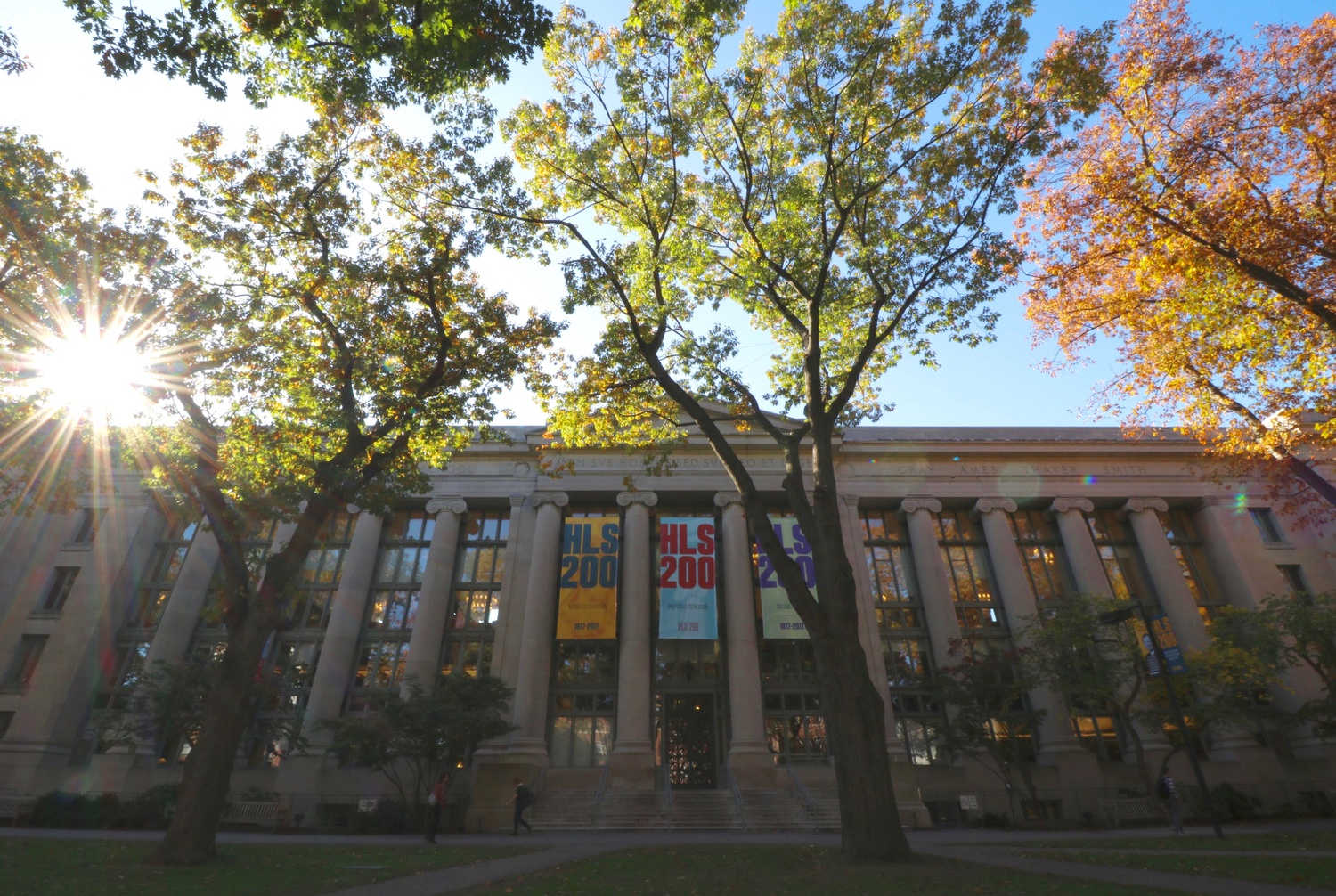
News
Pro-Palestine Encampment Represents First Major Test for Harvard President Alan Garber

News
Israeli PM Benjamin Netanyahu Condemns Antisemitism at U.S. Colleges Amid Encampment at Harvard

News
‘A Joke’: Nikole Hannah-Jones Says Harvard Should Spend More on Legacy of Slavery Initiative

News
Massachusetts ACLU Demands Harvard Reinstate PSC in Letter

News
LIVE UPDATES: Pro-Palestine Protesters Begin Encampment in Harvard Yard
Harvard Law School Announces Two New Clinics

Harvard Law School announced Wednesday that it has launched a new Voting Rights Litigation and Advocacy Clinic and plans to launch a Religious Freedom Clinic.
The Voting Rights Litigation and Advocacy Clinic offers students the opportunity to work with local or national nonprofit litigation and advocacy groups, including the League of Women Voters and the American Civil Liberties Union Voting Rights Project.
The clinic will focus on redistricting law, voter suppression, and threats to voting rights. Students in the program will take Election Law, taught by Professor Nicholas O. Stephanopoulos, and can individualize their approach to election law by focusing on areas such as election administration, political party regulation, or campaign finance.
“The Voting Rights Litigation and Advocacy Clinic will give our students the opportunity to learn, contribute, and practice law in a field that is central to American democracy,” Law School Dean John F. Manning ’82 wrote in a press release.
Ruth Greenwood will lead the clinic. A graduate of the University of Sydney and Columbia Law School, Greenwood previously served as an adjunct professor of law at Loyola University Chicago and as co-director of voting rights and redistricting for the Campaign Legal Center in Chicago.
Greenwood has worked as an advocate for voting rights for more than a decade and advised several states on the implementation of independent redistricting commissions. She was also the Lead Counsel for Voting Rights at the Chicago Lawyers’ Committee for Civil Rights Under Law and a Redistricting Fellow with the Democratic National Committee’s Voting Rights Institute.
Her work focuses on ending partisan gerrymandering and promoting minority representation. She has litigated two cases involving partisan gerrymandering — Whiteford v. Gill and LWVNC v. Rucho — from the initial trial level to the U.S. Supreme Court.
“Ruth Greenwood is a deeply experienced practitioner, thoughtful and principled lawyer who will be both a superb teacher and a wonderful mentor to our students,” Manning wrote. “I am delighted to welcome Ruth to Harvard Law School.”
The forthcoming Religious Freedom Clinic will be based on the Religious Liberty Clinic at Stanford Law School. It is designed to allow students to represent people who are restricted in the exercise of their religious freedom, according to a Law School press release.
In the Stanford clinic program, students can either represent individuals facing obstacles in the exercise of their faith or small churches, synagogues, or mosques with zoning issues.
Examples of the Stanford clinic’s work include the representation of a Muslim person sentenced to capital punishment who sought pastoral services in the execution chamber and a Seventh-day Adventist employee who could not work on Sunday because they observed the Sabbath.
“Students will have the opportunity to directly serve individuals from a wide range of faiths who would not otherwise have an advocate,” Law School professor Kristen A. Stilt, who directs the Law School’s Program on Law and Society in the Muslim World, wrote in a press release. “Students will learn the skills needed to engage with clients from diverse backgrounds, understand their faith commitments and the obstacles they are facing, and make legal arguments to achieve their clients’ goals.”
The Law School currently offers 46 legal clinics and student practice organizations aimed at giving students an opportunity to apply their education outside of the classroom.
“Providing students with practical lawyering experience and skills is one of the most important aspects of a Harvard Law School education,” Manning wrote in a press release.
—Staff writer Kelsey J. Griffin can be reached at kelsey.griffin@thecrimson.com. Follow her on Twitter @kelseyjgriffin.
Want to keep up with breaking news? Subscribe to our email newsletter.
